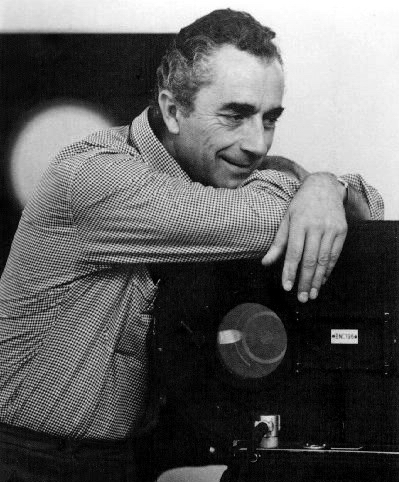|
|
| Antonioni, Michelangelo
 |
Date of birth
29 September 1912, Ferrara, Emilia-Romagna, Italy
Date of death
30 July 2007, Rome, Italy
Mini biography
Michelangelo Antonioni (September 29, 1912 - July 30, 2007)
Michelangelo Antonioni was born in the northern Italian city of Ferrara in 1912.
As an undergraduate at the University of Bologna, he wrote for the theater and film criticism for the journal, Cinema.
He later attended film school at the Centro Sperimentale.
Antonioni began his work in film as a scenarist and assistant director in the early 1940's, and in the later half of that decade, when neo-realism first began to emerge in Italian cinema, he made six distinctive short documentaries.
“Hollywood is like being nowhere and talking to nobody about nothing.”
When Antonioni was 38 years old, he made his first fiction feature, Cronaca di un amore (Story of a Love Affair, 1950), in which he began to depart from the neo-realism.
He used professional actors in middle-class settings and portrayed his characters with less social emphasis, in a more personal and psychological manner, stressing what he later descrived as "spiritual aridity" and "moral coldness."
He followed Cronaca di un amore with four other films in the mid-1950's, the best of these being Le amiche (The Girl Friends, 1955) and Il grido (The Outcry, 1957).

Antonioni did not come to international prominence until 1960 when he made his masterpiece, L'Avventura (The Adventure). At its premiere at the Cannes Film Festival, the film was received poorly by some critics who did not appreciate the film due to its slow pace.
They booed and continuously yelled "Cut!," asserting that Antonioni was inept at editing.
Despite these few negative reactions, Antonioni became a favorite among critics as a result of L'Avventura (the film placed second in 1962 on the Sight and Sound critics poll for the 10 best films in history but has since fallen down the list, dropping off completely in 1992).
L'Avventura was only the first part of a projected trilogy, and it was quickly followed by the second and third parts, La notte (The Night, 1961) and L'Eclisse (Eclipse, 1962), along with his first color film, Red Desert (1964). After Red Desert, Antonioni began to make films in other countries.
His first film abroad was Blow-Up (1966), which was made in Britain, based on a short story by Julio Cortazar. The film was internationally an enormous commercial success, one that Antonioni was never to repeat.
After Blow-Up, he made Zabriskie Point (1970) in the United States and The Passenger (1975), which starred Jack Nicholson, in Africa and England. In March of 1995, Antonioni won a special Academy Award for his lifetime achievement in film.
The Films of Michelangelo Antonioni
Michelangelo Antonioni emerged from the Italian film movement known as neorealism. Antonioni has claimed to be a Marxist intellectual, but as Pauline Kael has pointed out, although
Antonioni believes in the socialist criticism of society, his films, particularly L'Avventura, betray his lack of faith in the socialist solution.
Director - Selected filmography
-
The Passenger | Professione: reporter (1975)
-
Zabriskie Point (1970)
-
Blowup (1966)
-
Red Desert | IL Deserto Rosso (1964)
-
L'eclisse (1962)
-
The Night | La notte (1961)
-
L' Avventura (1960)
-
Le Amiche | The girlfriends (1955)
|
|
|
| Choose an item to go there!
|
|

